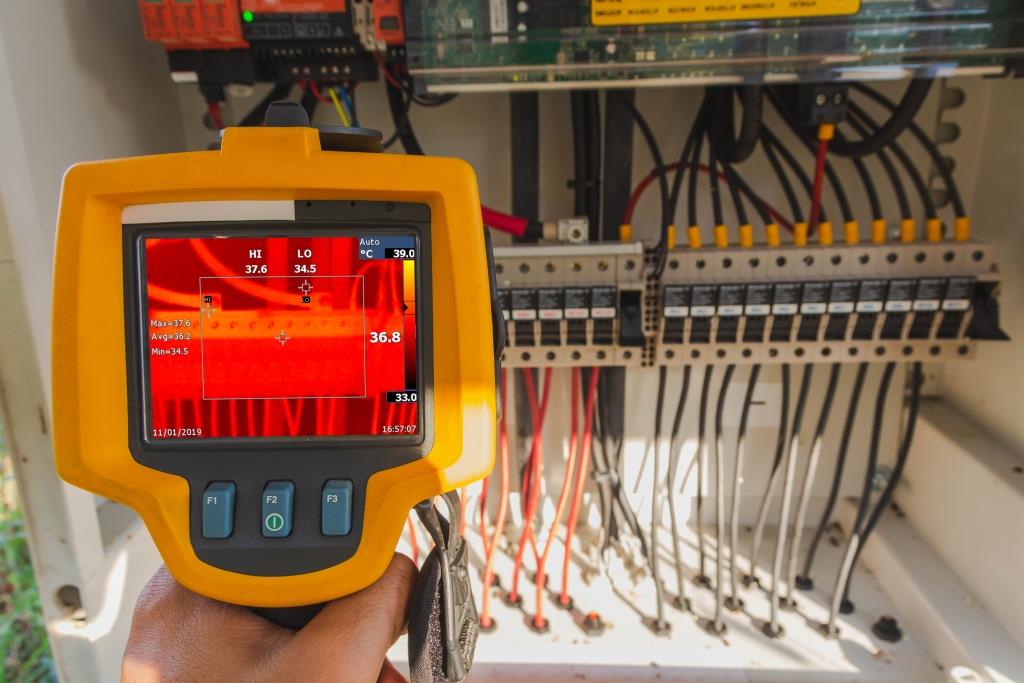India is one of the fastest-growing economies globally, and it has made remarkable strides in furthering its energy sector and economic efficiency. However, its energy demand is projected to increase with time. Therefore, the extent to which India’s energy sector has suffered in recent years with continuous power outages is plainly apparent. As a result, the need for energy conservation gains prime importance. While a fair amount of energy is generated, the domestic power shortage is still a problem due to inefficient equipment, poor design of buildings, and lack of usage consciousness among the people.
The need for greater energy efficiency leads to more and more companies looking at ways to assess energy efficiency. Thus, auditing your business’s energy efficiency is an essential step in identifying energy conservation and cost reduction opportunities. In this article, you will understand the concept of energy audit and how it can lead to substantial savings on utility bills.
Roadmap to Energy Conservation and Economic Efficiency
When a producer has a high output of energy consumption, it can often be challenging to determine the uses of energy that are the most effective. An energy audit involves the detailed analysis of energy usage and the identification of opportunities for energy conservation. It is essentially inspecting the energy within a building or equipment, calculating the cost of its energy usage, reducing carbon emissions, and promoting ways to safety.
Given the financial and environmental benefits, energy audits can help businesses identify ways to save money and lead to economic goals. It provides a detailed report of the energy consumption of systems and equipment, including lighting, mechanical devices such as boilers, thermal heaters, energy conversion, equipment, building, etc. Thereby, it offers a number of comprehensive energy solutions that help maximize the business’s energy efficiency.
Industrial production in India is driven by energy consumption. Studies seem to suggest that the industrial sector consumes 40% of the total energy consumed in India. Subsequently, the energy audit is a key to energy conservation. The primary purpose of an energy audit is to identify existing problems and decide on measures that can be implemented to improve performance. But the foremost step is to determine the type of energy audit that is required for your building or energy-using equipment. The two levels of an energy audit include:
- Preliminary Audit: Preliminary Audit is the first step to evaluate the company’s business processes, identify the areas needing improvement, and provide Energy Conservation Measures (ECMs). The main objective of this audit is to identify the energy cost and wastages occurring in the major equipment and processes, their operating characteristics, and the energy consumption pattern of a given company. This, in turn, helps the auditor to act upon the areas where improvement is required.
- All-inclusive Detailed Audit: Detailed Audit provides a comprehensive analysis of mechanical and electrical systems, generally through a survey or on-site assessment. The audit results in an energy assessment report that details the efficiency status of building components and quantitative evaluation of ECMs i.e., opportunities for improvement. It is vital since it comes with an in-depth computer-based evaluation and action plan aligned with an organization’s short-term and long-term goals.
As simple as it may sound, it takes high precision technology and advanced tools & software platforms to conduct an energy audit. Furthermore, an inefficient audit may lead to several risks and wastage of energy. Therefore, it is advised to seek professionals delivering services in compliance with the government standards.
As a leading provider of building and major equipment energy audits, VNT aims at providing a framework for your auditing process. By establishing an appropriate analysis, collecting and compiling preliminary data, and objectively prioritizing and implementing recommended energy solutions, we lay the foundation for your successful audit without compromising efficiency!
Need for Promoting Energy Audit: Leap Forward
Energy consumption is a significant factor in an organization’s sustainability and competitiveness. Energy resources are depleting, and it is essential for organizations to use their energy efficiently. Regardless of the energy inefficiency a business might be facing, energy audit facilities ensure a fully accredited energy performance of your building, plant, or equipment; and providing organizations with an audit report that gives out a comprehensive plan to improve its energy efficiency to reduce cost in the long term.
Some of the critical factors that call for conservation include:
- Limited Energy Resources: India accounts for around 16% of world’s population but only 1% of its energy resources. The need to cater to long-term energy requirements makes it essential to utilize the resources efficiently.
- Cost Benefits: An efficient use of energy-using equipment through processes such as an energy audit provides utility for a more extended period with low maintenance, which leads to energy saving. Decreasing demands for energy resources impact the overall price to drop and promote economic efficiency.
- Conducive Environmental Impact: Industrial buildings are likely to emit operational carbon through heating, cooling, and lighting, adding to an organization’s carbon footprint. Energy Audit offsets these emissions and assists the environmental goals of a business. If done efficiently, with the assistance of recognized and reliable service providers, it is an impactful way to achieve emissions reduction targets.
- Competitive Edge: By auditing buildings or equipment, businesses can not only aid the inefficiency and save energy, but it helps in accomplishing business standards. This, in turn, allows businesses to mark a positive impact and gain a competitive edge over their competitors.
Mandated Energy Audit Regulations
In accordance with the Bureau of Energy Efficiency Regulations (BEE) 2010, It is mandatory for businesses related to engineering, textiles, iron & steel, paper, petrochemicals, and other commercial buildings to conduct an energy audit once every three years. Businesses must opt for assistance from an accredited energy auditing service provider or a team of experienced energy engineers and professionals.
| The key question is “What is a successful energy audit procedure, as per the government regulations?” |
Involvement of a proper procedure that the government regulates includes:
- An understanding pattern of energy consumption through utility and electricity bills;
- Quantitative benchmarking and monitoring in comparison with year-wise trends and other competing industries;
- In-depth analysis of equipment’s energy efficiency and optimization to drive maximum utility of energy.
- Check on practices followed by the business during operation and maintenance, maximizing energy input requirements.
- Proposing ways of implementation and effective procedures in compliance with business plans.
- Usage of the best tools for an energy audit to reduce an overall impact on environment and lead to economic efficiency, mitigating any inefficiency during the process and after.
- Most importantly, preparing a comprehensive energy audit report that includes Energy & Utility, operational practices, and energy-saving measures and suggestions.
Although there are a number of benefits to be gained from implementing energy-efficient practices, both economically and environmentally, it can be challenging to decide the areas of improvement and inefficient loophole of a building or an equipment. However, with energy auditors and conservers being as progressive, we can avoid these inefficiencies.
How can VNT help you to comply with Energy Audit and Management?
An energy audit is a crucial initiative that must be conducted for any commercial building or energy-using equipment. VNT has made it convenient for businesses to investigate, establish and maintain the overall energy system in a time bound manner. Our services include fully-compliant and best practices. With the aim to conserve energy, we take the required measures to improve your business’s energy efficiency and cut costs. Our team of well-trained auditors keep you in track with the updated efficiency measures that can deliver real value to your business.
We provide energy audits, both preliminary and across-site audits, to analyze the efficiency of equipment and review current energy usage practices. Our consolidated reports highlight your organization with comprehensive ways to reduce annual utility costs, lower business energy consumption, and help in reducing carbon emission as per the government regulations without compromising the efficiency and productivity of the business.
Lowering the use of energy equipment will not solve the problem of inefficiency while maximizing the productivity of an organization. While the cost of energy-audit implementation might initially seem off-putting, taking into consideration long-term gains, and overall cost benefits, an energy audit is an investment well-worth making within your business. Our aim to recognize energy wastage to a path of energy conservation ensures that our services are reliable and contribute to energy savings and cost-effectiveness.
It is as crucial and effective for your business as your short-term and long-term business approach. Identify ways for your organization to use less energy, which will effectuate economic gains and help you reduce the environmental impact.
To kick start your green revolution and worthwhile contribution to society, contact us.










